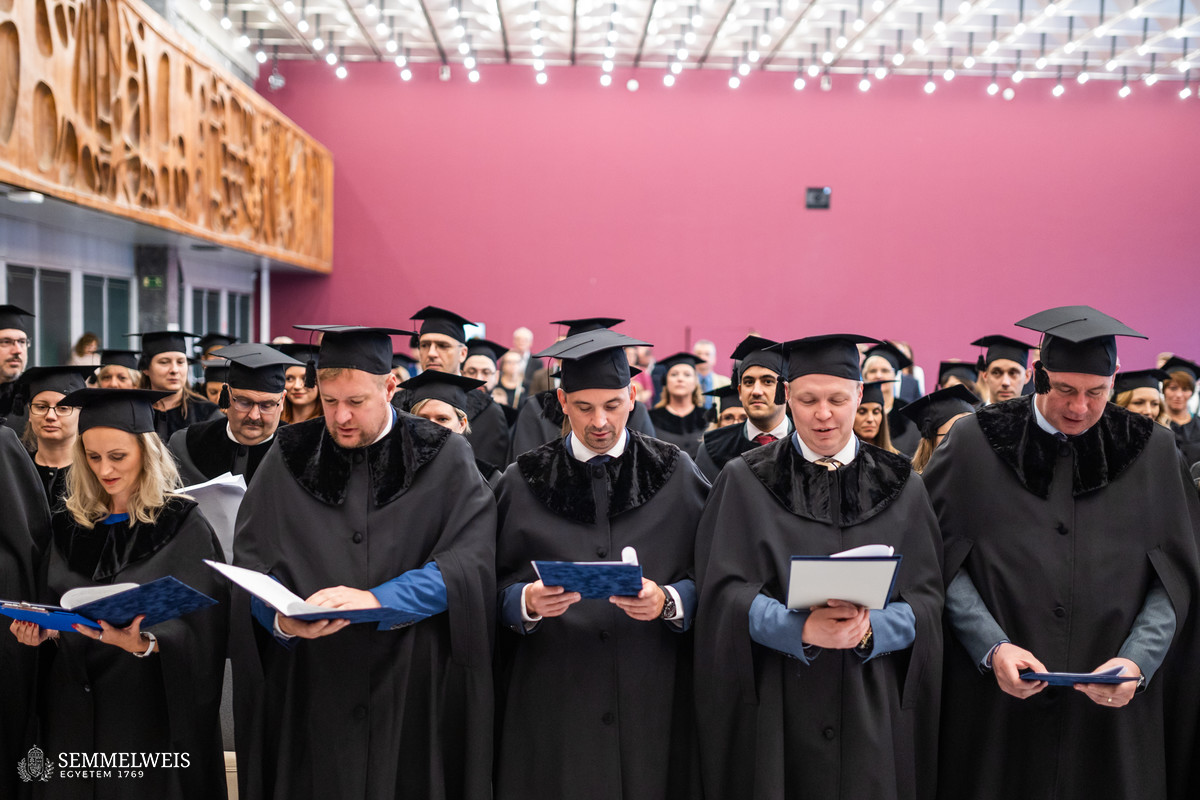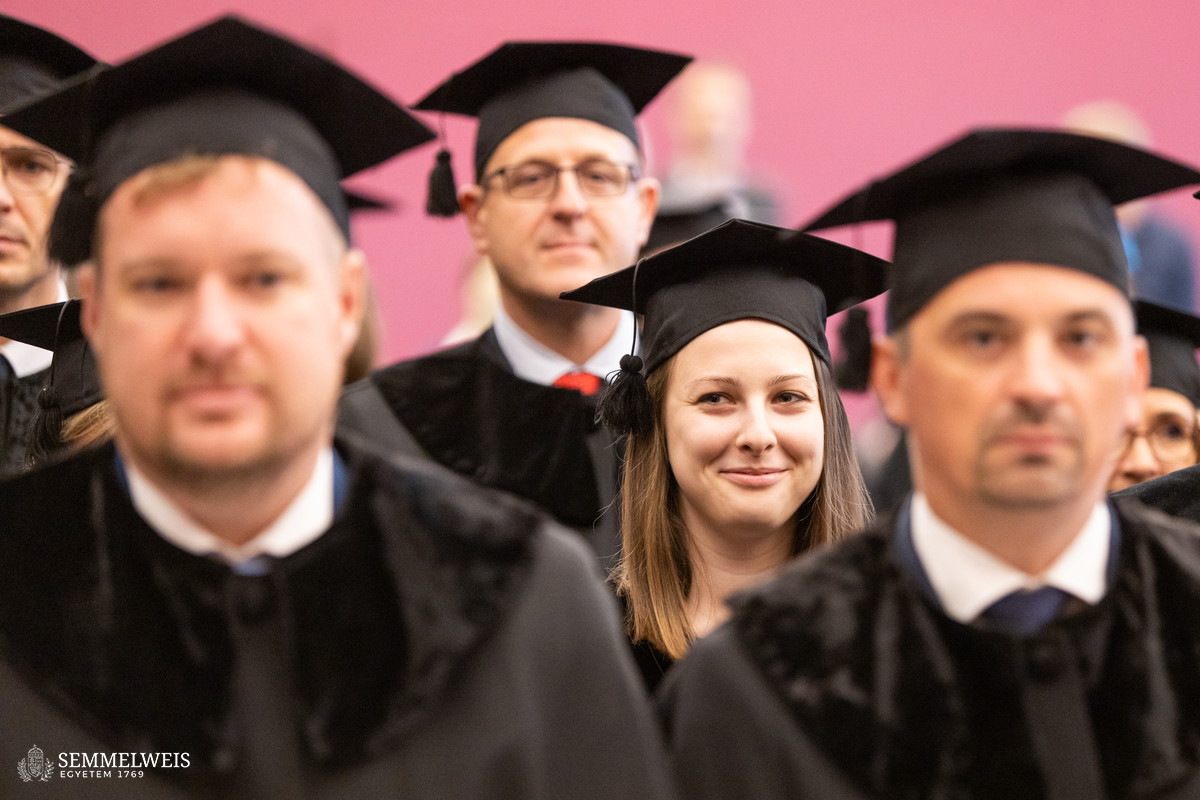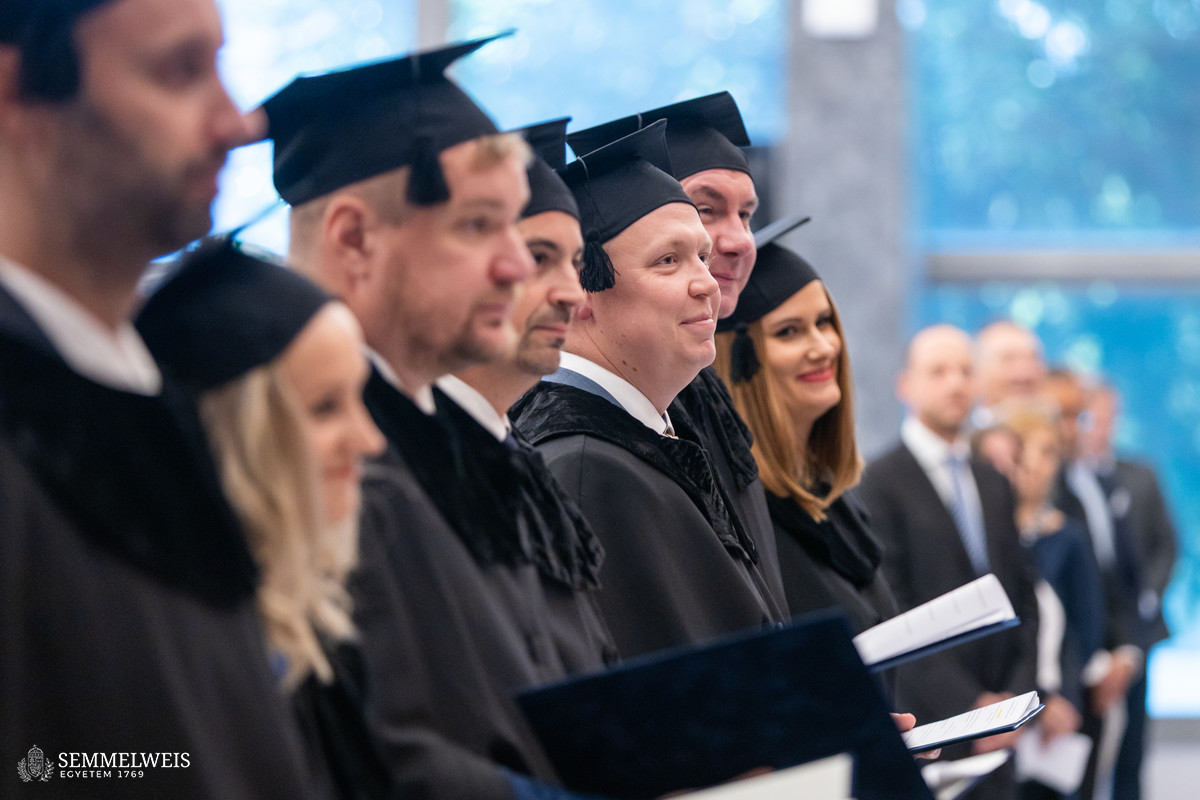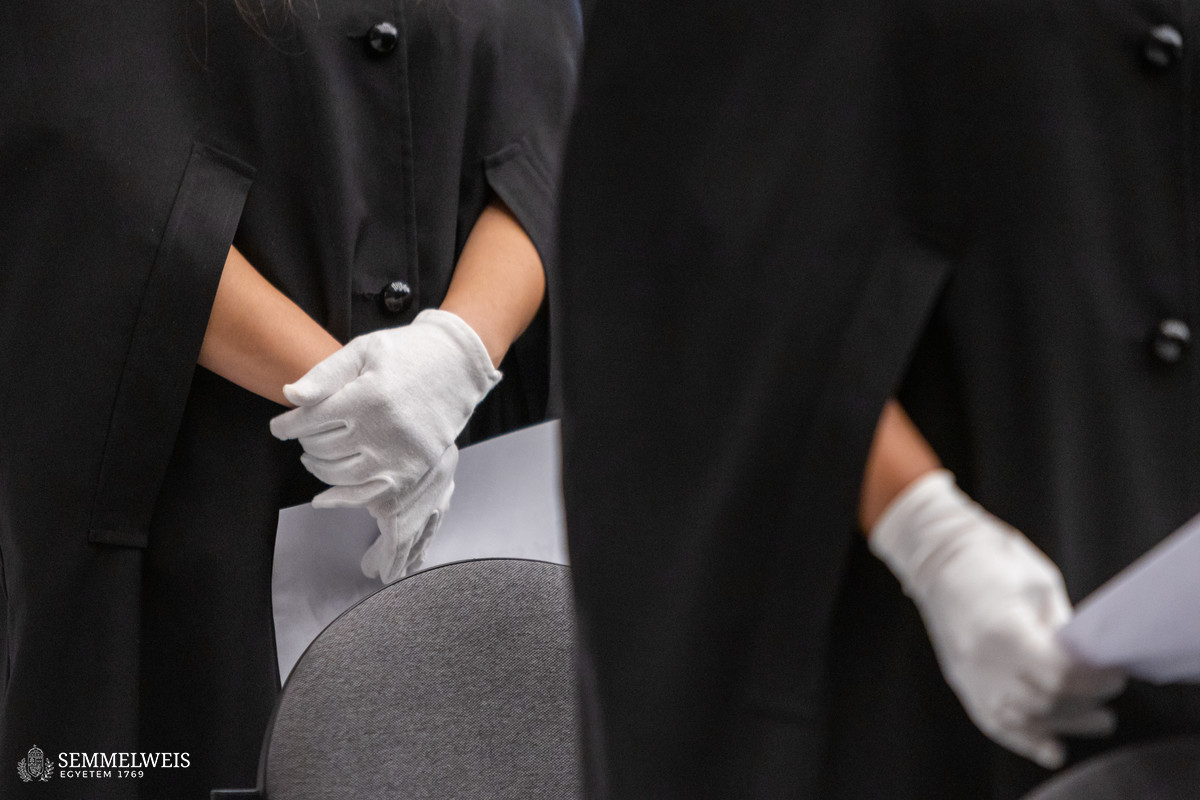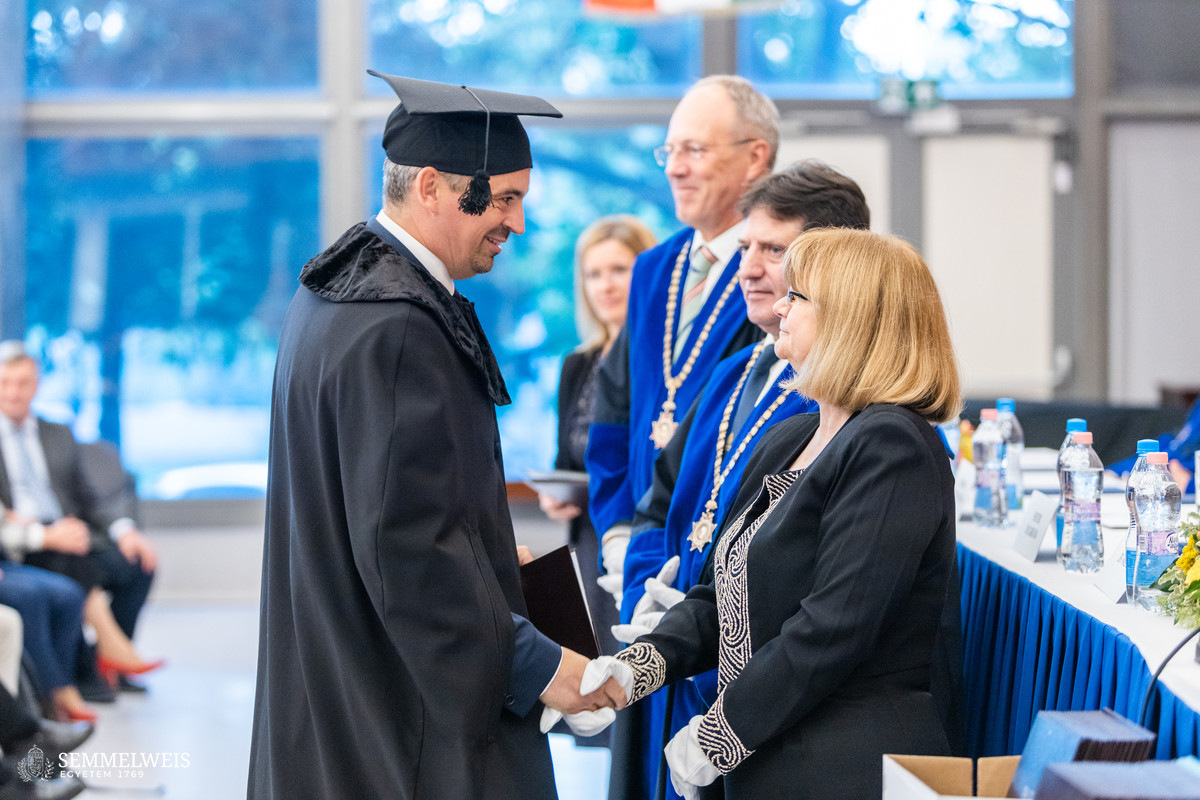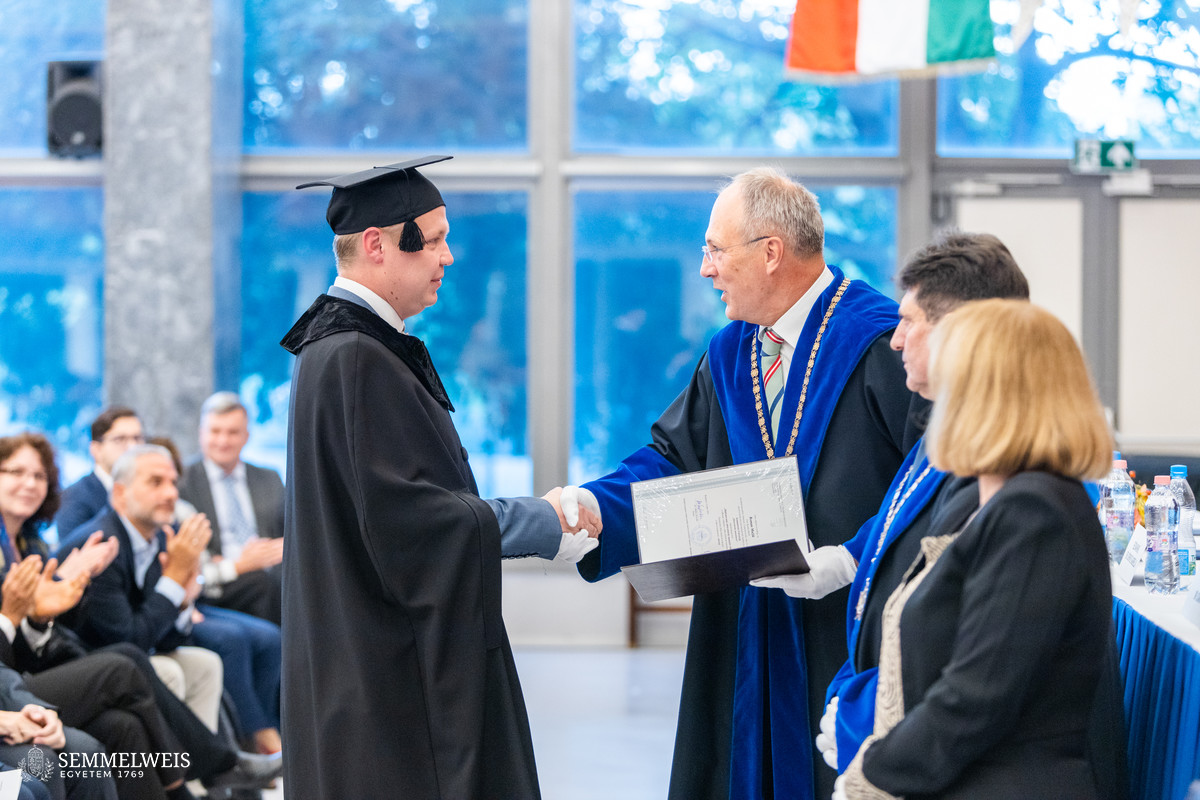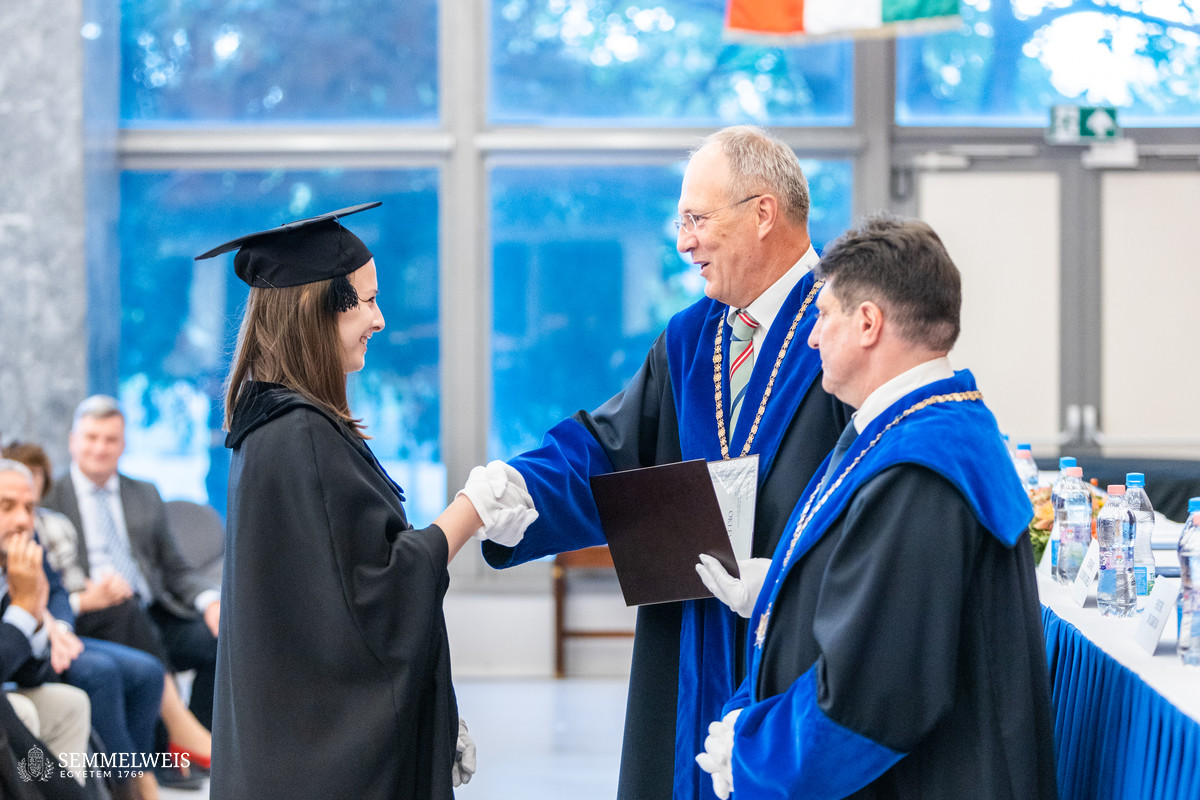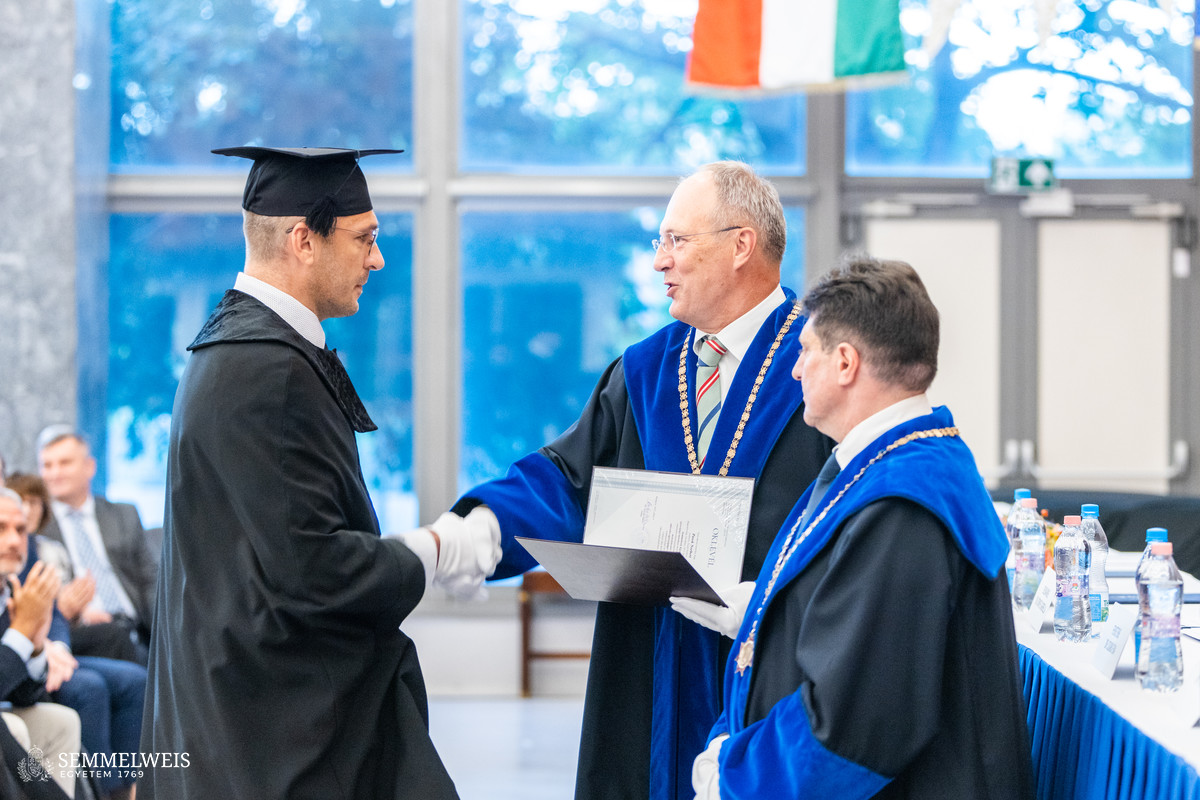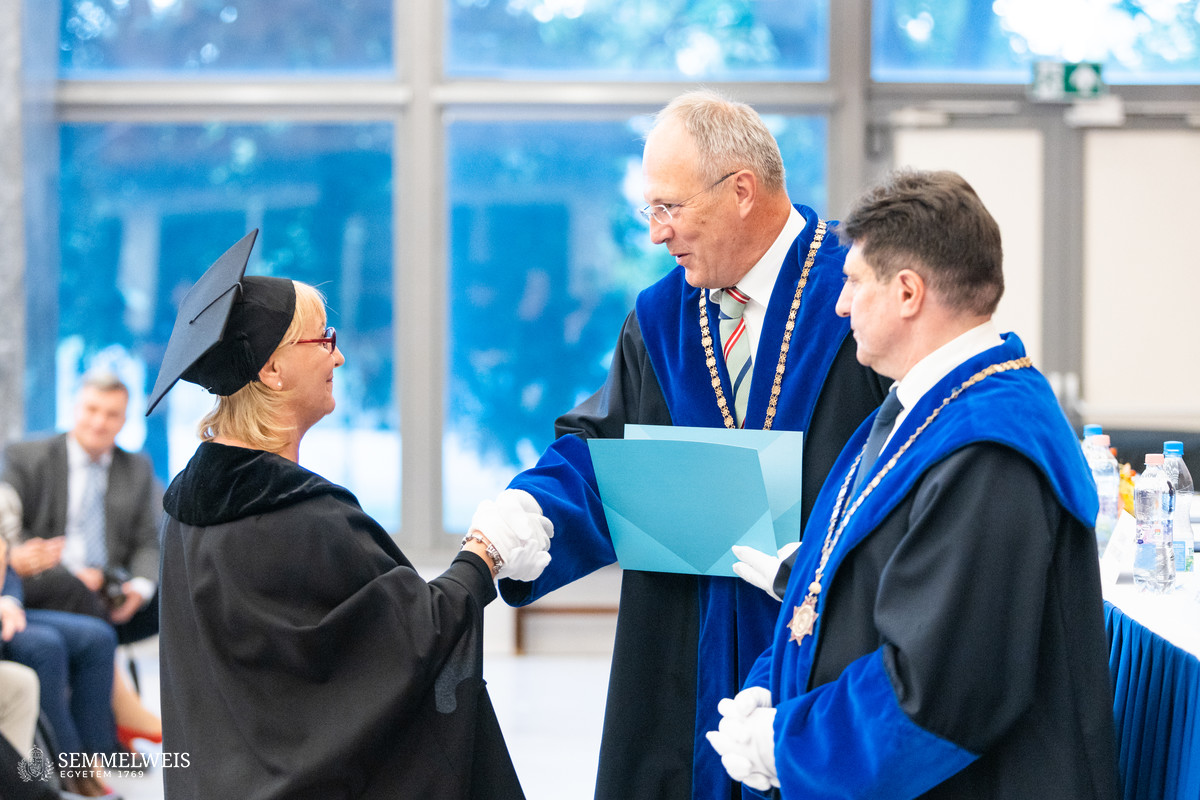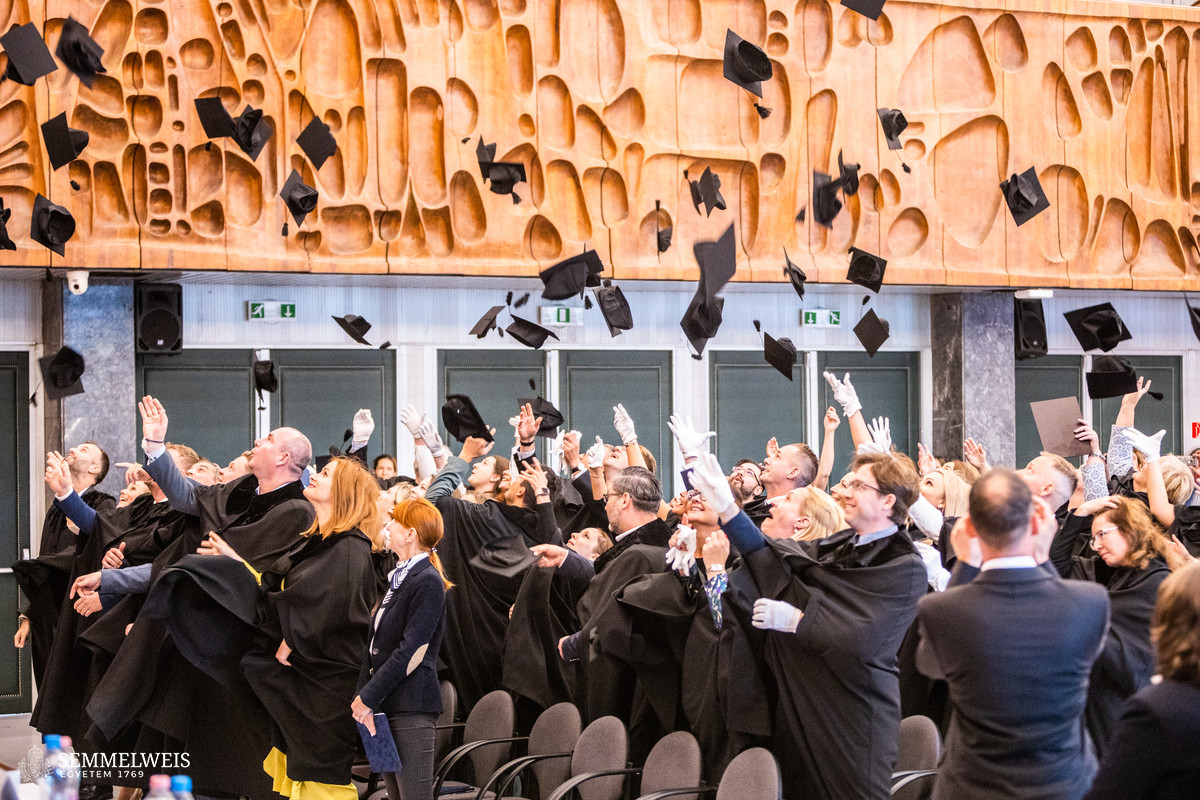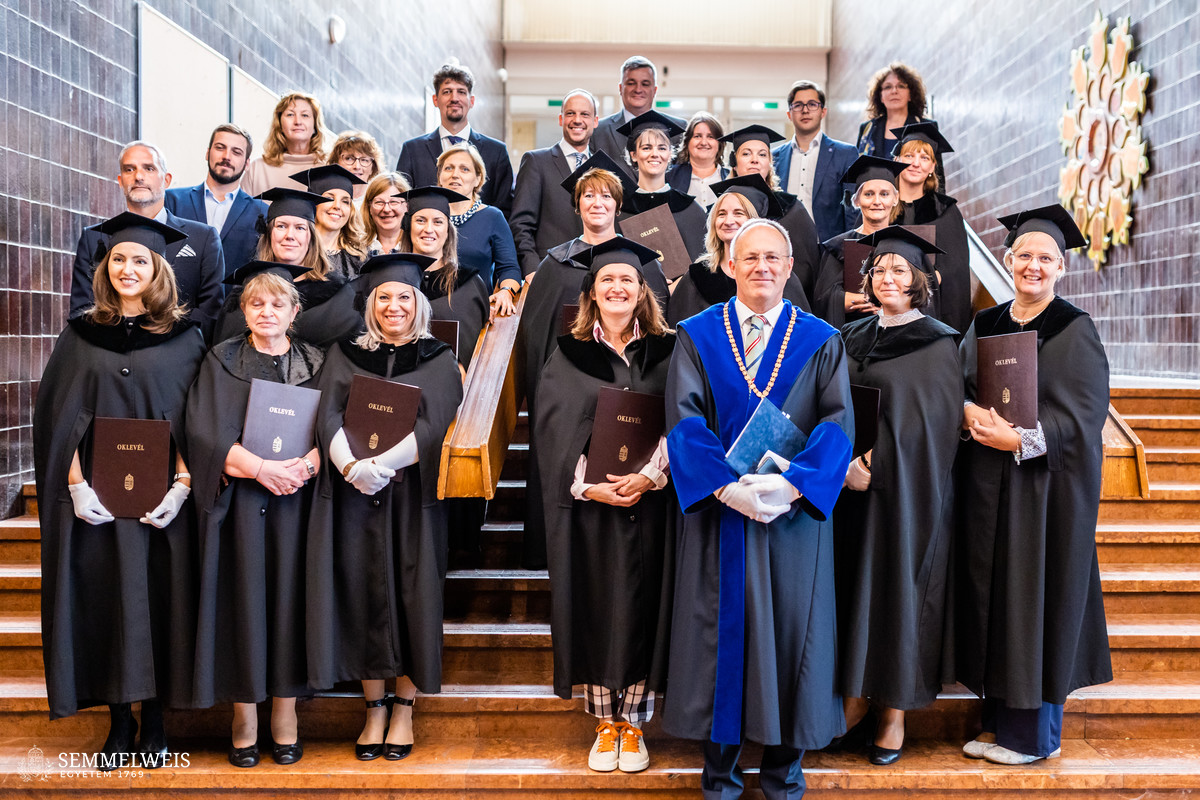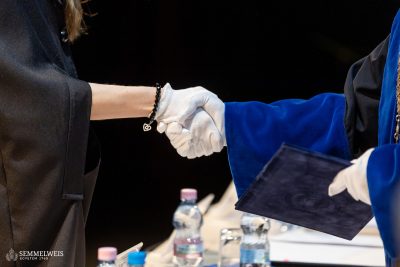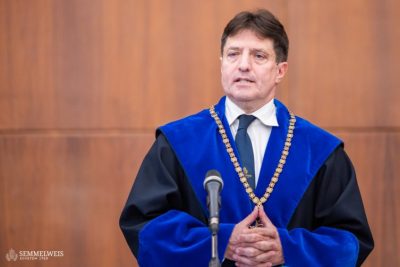 In his welcoming speech, Dr. Péter Hermann, Vice-Rector for Educational Affairs emphasized: it is a unique training not only at the university level, but also nationally, which equips the graduates with solid practical skills in addition to the knowledge that can be learned from textbooks. „In short, one might say that healthcare managers who graduate from Semmelweis University are the cream of Hungary’s industry leaders. Actually, the vast vajority, almost everyone completed the training in this sector,” added Dr. Peter Hermann. „The knowledge and networking possibilities offered here will most certainly benefit all graduates. I hope that you are going to be able to use this knowledge on the field successfully, and that you can put these professional and social contacts to the service of your profession,” said the vice-rector.
In his welcoming speech, Dr. Péter Hermann, Vice-Rector for Educational Affairs emphasized: it is a unique training not only at the university level, but also nationally, which equips the graduates with solid practical skills in addition to the knowledge that can be learned from textbooks. „In short, one might say that healthcare managers who graduate from Semmelweis University are the cream of Hungary’s industry leaders. Actually, the vast vajority, almost everyone completed the training in this sector,” added Dr. Peter Hermann. „The knowledge and networking possibilities offered here will most certainly benefit all graduates. I hope that you are going to be able to use this knowledge on the field successfully, and that you can put these professional and social contacts to the service of your profession,” said the vice-rector.
Dr. Miklós Szócska, Dean of the Faculty of Health and Public Administration addressed the Slovak and Hungarian graduates separately. The former being the first graduating class, the dean called the ceremony “the first milestone of the Slovak language training” and forwarded two messages to the participants. „This training has its place in Slovak healthcare. Although there are differences in the structure and approach of the two countries’ systems, the problems are the same,” he stressed, emphasizing that neither side is alone and that managing patient pathways, sustainability or the development of leadership culture is challenging professionals everywhere. The dean also reminded his audience that sharing experiences and community building is a fundamental element of the training. „This solidarity, community spirit must be preserved even after you resume work in the field, especially these days when hardships are challenging the sector in a number of ways,” he said.
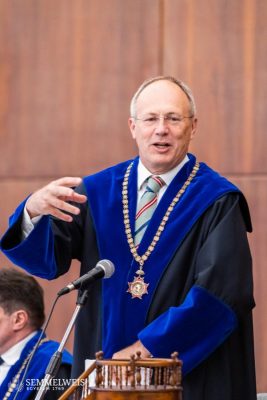 The dean expressed this idea to the Hungarian students as well, adding that one of the most important goals of the healthcare management program is that the graduates create healthy organizations and a real sense of community around themselves. ”This mission is far from easy, and there is a lot of talk about the crisis of the civil service lately. But we should not forget that universal access to healthcare is a privilege that is available in only one fifth of the world, and during these difficult times, our job is to preserve it, and find ways how to make it work more effectively and liveably,” he said.
The dean expressed this idea to the Hungarian students as well, adding that one of the most important goals of the healthcare management program is that the graduates create healthy organizations and a real sense of community around themselves. ”This mission is far from easy, and there is a lot of talk about the crisis of the civil service lately. But we should not forget that universal access to healthcare is a privilege that is available in only one fifth of the world, and during these difficult times, our job is to preserve it, and find ways how to make it work more effectively and liveably,” he said.
According to the dean, one of the biggest challenges in leadership development is how to equip professionals with the personal skills that will make them resilient in times of organizational conflicts, and transform them into leaders who can mobilize group resources to manage crises. “In the forthcoming period, there will be great need for health leaders with the ability to act autonomously, who will lead the organizations through the crisis that is around us,” said Dr. Miklós Szócska.
This year, a total of 30 professionals graduated from the Hungarian language MSc program in healthcare management, and 16 completed a specialized training program in social service management. The first class of the Slovak language healthcare management program graduated with 11 students.
The class consists of medical doctors, pharmacists, health professionals with management experience in private care, in the public sector and the pharmaceutical industry as well. They started their first academic year on October 1, 2020, and continued their studies partly online due to the pandemic.
Janka Červenáková, Managing Director of the Slovak partner institution, the Health Management Academy in Bratislava, told our website that the biggest asset of the training is the practice-oriented teaching format and diversity in general. Typically, students who join the program have experience in managerial work already, in different areas of healthcare. They all have unique backgrounds and approach a given problem differently, so there is a lot that could be learned by sharing professional experiences from various disciplines and discussing personal examples.
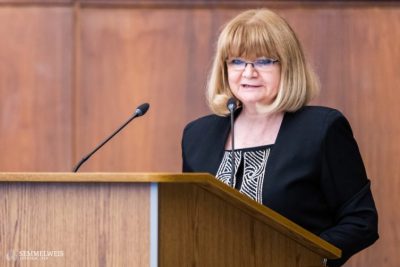 „Learning real-life conflict management and leadership skills is a very important part of the training. The curriculum places special emphasis on a practical approach to these skills, which is highly appreciated by the students. Thanks to that, Semmelweis University’s off-campus training needs no marketing basically, because the students see the features mentioned above such a high added value that they take care of promoting them themselves,” said Janka Červenáková.
„Learning real-life conflict management and leadership skills is a very important part of the training. The curriculum places special emphasis on a practical approach to these skills, which is highly appreciated by the students. Thanks to that, Semmelweis University’s off-campus training needs no marketing basically, because the students see the features mentioned above such a high added value that they take care of promoting them themselves,” said Janka Červenáková.
As for the future, technological innovations, such as the development of artificial intelligence or further analysis of patient pathways will certainly give some direction to training, but the human aspect will continue to be the dominant factor, according to Červenáková. “The biggest risk in healthcare today is the human element itself. In order to understand each other’s motivation and also, to find common ground for working together, leadership skills are of paramount importance and will always be a key focus of the training. We would like to grow and advance in these in the coming years,” she said.
At the off-campus master’s program in Bratislava, the official language of education, administration, examination procedures and the final examinations is Slovakian; the diploma certificate is issued in both Hungarian and Slovakian. Elective courses as well as professional internships are available in English, too. This way, interoperatibility between the Hungarinan language program in Budapest and the Slovakian language program in Bratislava is ensured.
Viktória Kiss
Photo: Bálint Barta – Semmelweis University
